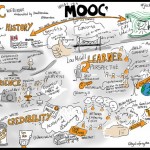Technology continues to disrupt and next in line is education. There has been a lot written about Massive Open Online Courses (MOOCs) and many renowned institutions are involved – Harvard, MIT, Stanford and more recently the Open University here in the UK with their FutureLearn model. The Khan Academy, launched by Salman Khan, delivers 200m classes via YouTube, with zero hosting costs, now that is clever.
MOOCs are still trying to establish their model and this may take some time, but what is really important is that traditional learning institutions cannot just sit back and disregard this wave of change. I accept that tier-one universities such as Harvard or Cambridge will always have demand for places due to the prestige associated with studying there. But a student in Europe or Asia will refuse to pay large sums of money to sit in a mediocre lecture in their own country when they can learn online from world class tutors and be associated with a leading university.
Currently the MOOC interest is more about bridging the gap between current knowledge and acquiring new skills in order to do a better job, or find a new one. These modular, bite-sized chunks of learning are possibly the icing on the cake. If 5 candidates interview for one role and have a similar degree and one has an additional 20 certificates of mastery in a specific area of study, it is likely that their CV will stand out. In today’s world, it is all about differentiation. The modules offered by MOOCs not only allow an individual to keep up with changes in the business world but possibly in future even anticipate how market sectors will evolve.
This is just one example. Technology is breaking up the majority, the mainstream and the mundane. Which sector is next?


